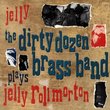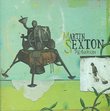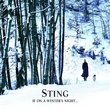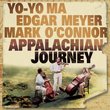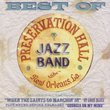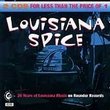| All Artists: Warsaw Village Band Title: Uprooting Members Wishing: 0 Total Copies: 0 Label: World Village USA Release Date: 4/12/2005 Album Type: Import Genres: Folk, International Music, Pop Styles: Europe, Eastern Europe Number of Discs: 1 SwapaCD Credits: 1 UPCs: 713746803629, 4006180426124 |
Search - Warsaw Village Band :: Uprooting
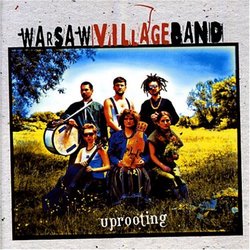 | Warsaw Village Band Uprooting Genres: Folk, International Music, Pop
Most listeners probably associate the words "Eastern European Folk Music" with klezmer, polka, and just about nothing else, but that may change after listening to the Warsaw Village Band's Uprooting, which in its sometimes... more » |
Larger Image |
CD DetailsSynopsis
Amazon.com Most listeners probably associate the words "Eastern European Folk Music" with klezmer, polka, and just about nothing else, but that may change after listening to the Warsaw Village Band's Uprooting, which in its sometimes gut-wrenching juxtaposition of ancient Polish instruments like the hurdy-gurdy and dulcimer with modern DJ scratches and trance beats is somehow both more traditional and more futuristic than the group's debut, People's Spring released in 2002. Devoted to updating Polish folk music, on Uprooting the band teams up with several traditional Polish folklorists who contribute some short interludes ("Janina Zdrzalik" and "Josef Lipinski") that make portions of the disc sound like the Polish equivalent of early American field recordings. But the band's skill is in blending these traditional Polish musical elements so seamlessly into their own compositions, which use a striking half-screamed vocal style called "white singing," cello and szuka (a small Polish violin) along with sometimes dirge-like drumming. "Women In Hell" manages to sound trance-inducing in both the ancient and modern sense of that word, while "Let's Play, Musicians" is a beautiful cello-based ballad and "When Johnny Went to Fight in the War" marries Polish folk music with Tom Waits-ish trip-hop. Overall, Uprooting proves that at least in the Warsaw Village Band?s hands, the meeting of ancient and modern isn't so much a collision as it is cause for celebration. --Ezra Gale Similarly Requested CDs
|
CD ReviewsSome curious developments Thomas Bernacki | Hamilton, Ontario, Canada | 03/28/2006 (3 out of 5 stars) "After hearing the Warsaw Village Band perform live on a CBC Radio Two broadcast I immediately went out and purchased their album "People's Spring", and was instantly blown away. For someone who had grown up in a Polish household and had always been exposed to Polish folk music along the lines of Mazowsze and ?l?sk, the Warsaw Village Band was an incredibly vibrant breath of fresh air. This was raw, this was earthy, this was ancient. And while I always felt that Polish folk music was very emotionally genuine, it often (but not always) ended up sounding very sanitized, glossy, and even quite cheesy. But "People's Spring" made it clear that the WVB was different. And so I anxiously awaited their follow up. Unfortunately, "Uprooting" doesn't shine the way "People's Spring" did. You get a taste of it right from the first proper track (after a brief "roots" introduction). "In The Forest" starts off much like "To You Kasunia" does on "People's Spring", but it isn't long before very distracting scratches and samples start intruding into what is an otherwise exciting and melodic song. While the two "remix" tracks on the previous album used samples and electronic beats even more than this, they felt obviously like "bonus" material, and so didn't disrupt the integrity of sound and mood of the rest of the album. But these more modern elements are incorporated integrally into a few of the tracks on this album. I think that it might have been a better idea to include the "unadorned" versions in the main body of the album, and include the techno-ized versions at the end, as was done in the previous album. So for someone who enjoyed "People's Spring", I just wanted to point out that particular and striking difference, in a few of the tracks. Even ignoring this detail, and considering the album overall, it fails to impress me the way "People's Spring" did. Overall the melodies are weaker, the harmonies thinner, and in many tracks the instrumentation is very sparse and almost entirely percussive when present. The vocals carry the melodies almost entirely in this album, and while that in itself isn't a bad thing (the women have beautiful voices), there is a lack of the depth and richness in the instrumentation that really helped to create a wonderful atmosphere in the previous album. For example, "Woman in Hell" is a wonderful song, a real standout on the album. But I can't help but think that it would stand out so much more if the instrumentation wasn't so barren. There is no instrumental melody or harmony whatsoever, the strings only scrape along percussively for the entire track. Another curious development is the "jazziness" present in much of the album. It really sounds quite out of place to me. It strikes me that perhaps members of the band have been playing in jazz ensembles on the side, and the sound is carrying over to the WVB. But even that doesn't satisfactorily explain it, because it gets to the point where it seems that the underlying Polish folk songs are simply vehicles for musical experiments in fusing different styles and instruments. One starts to lose sight of the fact that these are Polish folk songs, originally sung by peasants in the fields, at weddings, love songs. I always had the impression of the WVB that they strove to dig up the real underlying spirit of these folk songs and rescue them from the modernizations that had buried Polish folk in the last several decades (and in this album they pay tribute to the people that are keeping this spirit alive in the "roots" interludes), but it seems that in the end the WVB just re-bury them in a different way, forgetting or losing sight of where the songs came from. I appreciate that what they are doing is all done honestly, but is what they have created what they want to achieve? For in the liner notes they themselves say of some of the guests on the album (Marian Pelka Band): "They are the three musical warriors, who in defiance of time, fashion, and oppression, have been faithful to the roots path for more than half a century. In their art they are free, unique, universal and eternal." While this album is surely free and unique, I wonder how universal or eternal the WVB's interpretation of many of these folk songs is. Now so far this review is almost wholly negative, but this is nevertheless an enjoyable album. Standout tracks include "Woman in Hell", "Polka from the Sieradz Region" (my favourite), "Let's Play, Musicians!", "The Owl", and despite the scratching and samples the brilliance of "In the Forest" still somehow manages to shine through. Other positives are the "Roots" interludes, which are all very interesting. And the Lipsk Women's Choir is a great addition as well, the songs in which they perform are leant a wonderous and mysterious air by their voices. Finally, compared to the easily 5-star "People's Spring", I will rate this 3-stars, although it is close to being worthy of 4. Had the first track not made such a bad first impression with the scratches and samples, it would have probably gotten a 4. But the jazzy tone of much of the rest of the album, as well as the sparse unmelodic instrumentation, keeps this album a 4 rather than a 5. If you enjoyed "People's Spring" this is still worth buying for the standout tracks that I mentioned above. But I expect that you won't enjoy this album quite as much as the Warsaw Village Band's previous album." More Great Music From Kapela Ze Wsi Warsawa Montmorency | 10/26/2005 (5 out of 5 stars) "First, I have to say that I prefer People's Spring over this album. This one is definitely worth buying, though. The sound is sort of jazzier, more modern, like on A Jak Pojechal Jas Na Wojenke (When Johnny Went to Fight in the War) which features a sort of jazzish bass and record-scratching. There are four tracks under one minute long, and they have sound an old sound to them. They're like little snippets of older people talking about/playing traditional music. I'm not really sure. You can catch glimmers of the sound from People's Spring in some tracks, like Polka z Sieradzkiego. My favorite songs from this album are 5. Polka z Sieradzkiego, 8. Zagrajcie Muzykanty! (Let's Play, Musicians!), and especially 14. Powalem (I Slayed the Rye), which is my favorite from this release." Kapela delights and astounds! J. L. N. | 10/07/2007 (5 out of 5 stars) "From the band's name, Kapela Ze Wsi Warsawa (which is directly translates into English as "Warsaw Village Band" but it means something more like "Band from a Little Village called Warsaw") we know that there is a humor and zest for life in the young musicians that comprise Kapela. From start to finish, this record takes that energy and sends it into motion, swirling through time, space and consciousness.
Before I go on, I'd like to address some of the other reviews here on Amazon that I have read about this particular album: as other reviews point out, this album is not the same as "Wiosna Ludu" (People's Spring) and yet they compare them anyway. This is commonly known as "lazy journalism". They are not the same record, they do not have the same musical "goal" nor are they even made with the same line-up and therefore they should not be compared; each is a spectacular record in it's own right. This, their 3rd album, "Wykorzenienie" (Uprooting) shows not only the growth of these amazing musicians and conservators, but also that these traditional and ancient sounds of Poland are relevant and even mesmerizing in today's electronic and bass-driven popular music. This album is a must-have for the folk enthusiast or those interested in the audio fusions of national and global culture. Listen to the audio samples above and hear for yourself! " |

 Track Listings (16) - Disc #1
Track Listings (16) - Disc #1